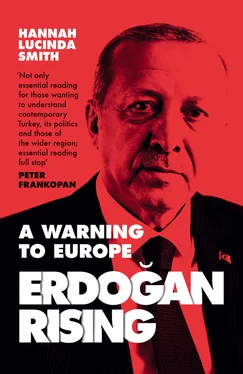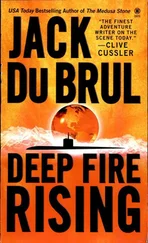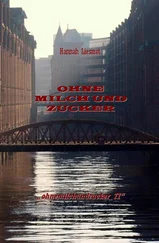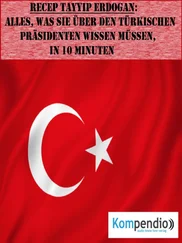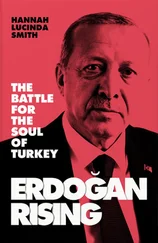I found myself fascinated by him, too. The first time I saw Erdoğan in the flesh was not for a story – it was just because I happened to be in the area and was interested. In May 2013, while I was still living in Antakya, a double car-bombing hit Reyhanlı, another small Turkish border town hosting thousands of Syrian refugees. The attack was the first spill-over from the Syrian conflict, and the toll was horrific: fifty-two people killed and the heart of the town ripped out. Pieces of seared flesh were later found in the town’s sewers, so intense was the force of the blasts. Some Syrians headed back across the border into the war zone, fearing they might soon feel the brunt of the locals’ anger if they stayed. A week later, Erdoğan went to Reyhanlı to speak to the people. As it was only half an hour down the road from Antakya, I decided to go.
Compared to what I would see in later years, the crowd then was small and calm and Erdoğan’s speech was measured. But that day I noticed certain things I would go on to see again and again: how hundreds of people appeared to have been bussed in from every corner of the country, how party volunteers were handing out flags and baseball caps which, when televised, gave the appearance of a sea of red, and how the people who had showed up seemed to care far more about being close to Erdoğan than about what had happened in Reyhanlı.
How different that low-key event was to the time I saw him four years later, on a chilly May Sunday in 2017. It was a month after he had snatched narrow victory in a constitutional referendum to switch legislative power from the parliament to the president, and the AKP was holding its party congress in Ankara’s main basketball arena. By the time I took my seat at 8 a.m., the entire place was packed and rowdy with young men chanting for their hero. Erdoğan was due to take the stage around noon, to reclaim his place at the head of the party. He had nominally stepped down when he resigned as prime minister and was elected president three years earlier – the head of state was supposed to be politically unaffiliated according to the old, now-discarded constitution. In reality he had never loosened his grip over the party. He continued to campaign for the AKP in parliamentary elections, and had publicly ousted a prime minister who had dared to stray too far from his line.
As a political spectacle, the congress was incredible. There were men in the crowd who had arrived dressed as Ottoman sultans, sitting alongside Kurdish women holding banners proclaiming they were from şırnak, an eastern town that had recently been decimated by fighting between Turkish security forces and Kurdish militants. ‘Everything for the homeland!’ they whooped, ululating as Middle Easterners do at weddings – a bizarre celebration of their home town having been smashed to rubble. Music boomed non-stop from the speakers – a limited repeat playlist of Ottoman marching music, and the referendum campaign song titled ‘Yes, of course’. The one that got the loudest singalong was the dombra , a paean to Erdoğan and an unashamedly cringing anthem. ‘He is the voice of the oppressed, he is the lush voice of a silent world. Recep Tayyip Erdoğan!’ the lyrics begin, continuing on a similar theme through four verses.
Erdoğan entered the building as scheduled, accompanied by his wife and son-in-law, the then-energy minister Berat Albayrak, who most believe he is priming as heir. Tubs of red carnations had been strategically placed around the edges of the stands and Erdoğan threw them out to his adoring crowd as he did a victory lap. The grey men on the stage must have felt rather outshone as they reeled through their dry lists of candidates for various posts within the party. For top job Erdoğan was standing uncontested, and that was the only item on the agenda that really mattered.
Turkey is different from the other countries falling under the sway of strongmen. It boasts not one, but two – perhaps even three or four – coexisting personality cults.
There is Erdoğan’s, a cult in the ascendant I have seen evolve before my eyes. There is the cult of Abdullah Öcalan, the grandfatherly-cum-psychopathic leader of the PKK ( Partiya Karkerên Kurdistanê , the Kurdistan Workers’ Party – the Kurdish militia fighting against the state in eastern Turkey), who has been banged up in an island prison since 1999, yet still commands a huge following among the Kurds and their diaspora. As well as the Turkish PKK there are affiliated militias fighting in his name in Syria, Iraq and Iran. His appeal stretches to Western leftists who are so enchanted by his ideas on women’s equality and government without the state that they are willing to overlook the atrocities that his gunmen and women commit. As the latest peace process broke down in the summer of 2015, I went to interview Öcalan’s brother in the south-eastern mountains of Turkey, having been told I would find him an intelligent, sensible kind of guy who would give me an honest account of his notorious sibling. Mehmet Öcalan’s home-grown figs were delicious, but the interview quickly veered into the bizarre. He tried to convince me that his brother knew, and by extension controlled, exactly what was going on in the Middle East day by day from his solitary prison cell, thanks to his psychic powers. Throughout, he referred to him as ‘Serok’ (Kurdish for ‘leader’) – never Abdullah or ‘my brother’.
There was, and perhaps still is, the cult of Fethullah Gülen, a wizened Islamic cleric who has been commanding a network of secretive followers since the 1960s. He has been living in exile on a secluded and heavily guarded ranch in Pennsylvania, USA since the 1990s, but until recently his devotees occupied high ranks within the Turkish bureaucracy, police and judiciary. They used their positions to bully and punish anyone who opposed them, most notably secularists who were uneasy with the idea of a secret Islamic cult wielding so much power in their country. Erdoğan and Gülen were allies, of sorts, until they fell out spectacularly in 2013 and began a personal war played out through the state. Erdoğan accuses Gülen of organising the attempted coup of 2016. At present, a Turk’s life can be ruined by the mere suggestion that they have at any time and in any way been affiliated with the movement.
And then there is the cult of Mustafa Kemal Atatürk, founder of the Turkish republic and possibly the only man capable of raising a serious challenge to Erdoğan despite the fact that he has been dead for eighty-one years. Atatürk – or at least the Atatürk who is still very much alive in the imagination of today’s Turks – stood for almost everything Erdoğan despises, and vice versa. He was an unbending advocate for secularism, non-aggression in dealings with other states, and a Turkey that is allied to Europe and the West.
Atatürk has always been a Turkish hero, but increasingly he is also the figure Erdoğan’s opponents rally around. During the 2017 constitutional referendum campaign the streets of my Istanbul neighbourhood – a secular bastion that voted 81 per cent against Erdoğan’s plans to gather power in his own hands – turned into an open-air gallery of Atatürk-inspired artwork. The ‘İzmir March’, an anthem to militarism and Mustafa Kemal, was the unofficial theme tune of the ‘No’ campaign. It is common, both inside Turkey and without, to hear Erdoğan’s detractors bemoan how he is unravelling Atatürk’s legacy.
Maybe it said more about the state of the opposition than it ever did about the enduring strength of Atatürk. There is no question that this cult continues, but its cracks are beginning to show. Over the course of Erdoğan’s reign, those who have in the past quietly loathed Atatürk and all he stands for have found they can finally speak out. They are primarily the religious poor, dispossessed by Atatürk’s unbending secularism, though they also include liberals who wince at the thought of unbridled adoration in any direction. But those same liberals who once supported the downgrading of Atatürk’s legacy are now recoiling at Erdoğan’s transformation from man to deity by his followers. And so, Turkey has become a fascinating Petri dish – a perfect place to observe one cult of personality in the ascendant, alongside another in slow decline.
Читать дальше
